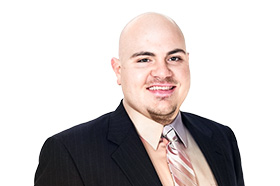The IRS recently provided initial guidance in the form of questions and answers (Notice 2024-63) on the new rules added by the SECURE 2.0 Act that allow employers to make matching contributions to an employee retirement account based on qualified student loan payments (QSLPs).
The new rules apply for contributions to Section 401(k) plans, Section 403(b) plans, governmental Section 457(b) plans, and SIMPLE IRA plans for plan years beginning after Dec. 31, 2023. Under the rules, a QSLP is generally defined as a payment that was made by an employee in repayment of a qualified education loan, which is generally defined as any indebtedness incurred by an employee solely to pay qualified higher education expenses. The expenses must be all of the following:
- Incurred on behalf of the employee, the employee’s spouse, or any dependent of the employee as of the time the indebtedness was incurred
- Paid or incurred within a reasonable period of time before or after the indebtedness was incurred
- Attributable to education furnished during a period during which the recipient was an eligible student.
There are several other conditions, and the employee making the loan payment must certify annually to the employer making the matching contribution that payment has been made on the loan. In addition, QSLPs to Section 401(k) and 403(b) plans are generally limited to the annual limit on employee elective deferrals under Section 402(g) (generally $23,000 for 2024, adjusted annually for inflation), reduced by an employee’s elective deferrals for the year.
Notice 2024-63 addresses, among other guidance, the QSLP certification requirement and provides that the following items of information must be received by a plan (including a third-party service provider acting on behalf of the plan) to satisfy the certification requirement:
- The amount of the loan payment
- The date of the loan payment
- That the payment was made by the employee
- That the loan being repaid is a qualified education loan and was used to pay for qualified higher education expenses of the employee, the employee’s spouse, or the employee’s dependent
- That the loan was incurred by the employee
The notice also provides guidance on how this information can be provided, including, among other approaches, through an affirmative certification by an employee.
The IRS indicated that the notice generally provides guidance only on “discrete issues” under the new rules in order to assist plan sponsors in implementing QSLP match programs, and that it anticipates issuing proposed regulations at some point in the future.
The guidance applies for plan years beginning after Dec. 31, 2024. However, the IRS indicated that, for plan years beginning before Jan. 1, 2025, a plan sponsor may rely on a good faith, reasonable interpretation of the new rules added by the SECURE 2.0 Act.
Contacts:
Content disclaimer
This content provides information and comments on current issues and developments from Grant Thornton Advisors LLC and Grant Thornton LLP. It is not a comprehensive analysis of the subject matter covered. It is not, and should not be construed as, accounting, legal, tax, or professional advice provided by Grant Thornton Advisors LLC and Grant Thornton LLP. All relevant facts and circumstances, including the pertinent authoritative literature, need to be considered to arrive at conclusions that comply with matters addressed in this content.
For additional information on topics covered in this content, contact a Grant Thornton professional.
Grant Thornton LLP and Grant Thornton Advisors LLC (and their respective subsidiary entities) practice as an alternative practice structure in accordance with the AICPA Code of Professional Conduct and applicable law, regulations and professional standards. Grant Thornton LLP is a licensed independent CPA firm that provides attest services to its clients, and Grant Thornton Advisors LLC and its subsidiary entities provide tax and business consulting services to their clients. Grant Thornton Advisors LLC and its subsidiary entities are not licensed CPA firms.
Tax professional standards statement
This content supports Grant Thornton Advisors LLC’s marketing of professional services and is not written tax advice directed at the particular facts and circumstances of any person. It is not, and should not be construed as, accounting, legal, tax, or professional advice provided by Grant Thornton Advisors LLC. If you are interested in the topics presented herein, we encourage you to contact a Grant Thornton Advisors LLC tax professional. Nothing herein shall be construed as imposing a limitation on any person from disclosing the tax treatment or tax structure of any matter addressed herein.
The information contained herein is general in nature and is based on authorities that are subject to change. It is not, and should not be construed as, accounting, legal, tax, or professional advice provided by Grant Thornton Advisors LLC. This material may not be applicable to, or suitable for, the reader’s specific circumstances or needs and may require consideration of tax and nontax factors not described herein. Contact a Grant Thornton Advisors LLC tax professional prior to taking any action based upon this information.
Changes in tax laws or other factors could affect, on a prospective or retroactive basis, the information contained herein; Grant Thornton Advisors LLC assumes no obligation to inform the reader of any such changes. All references to “Section,” “Sec.,” or “§” refer to the Internal Revenue Code of 1986, as amended.
Grant Thornton Advisors LLC and its subsidiary entities are not licensed CPA firms.
Trending topics






Share with your network
Share